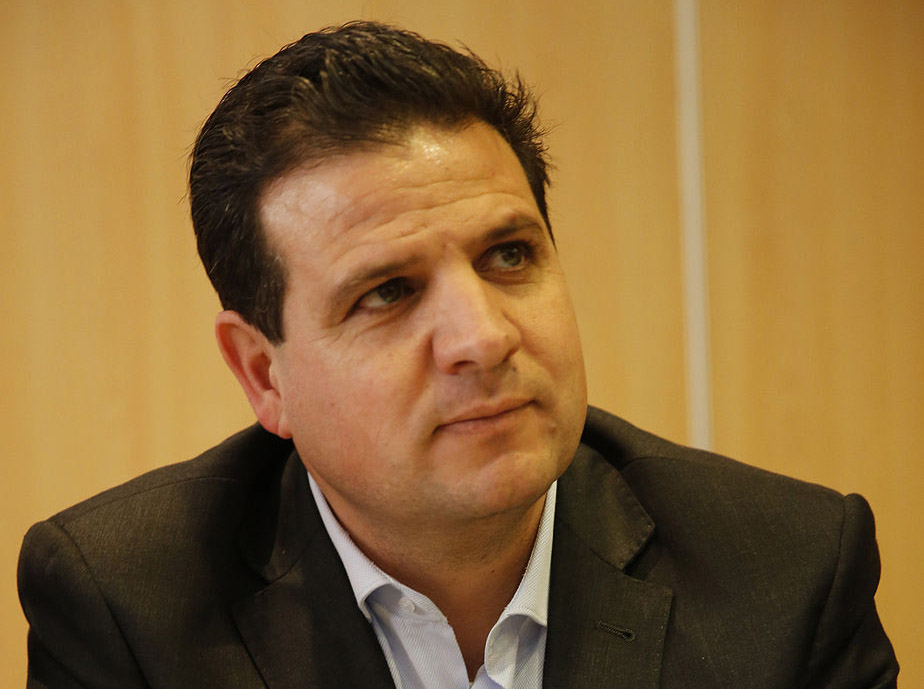Australia/Israel Review
Scribblings: A Story of Success
Apr 1, 2021 | Tzvi Fleischer

Ayman Odeh, head of Israel’s Joint List party – a coalition of three parties whose voters are overwhelmingly Israeli Arabs – is neither a big fan of Zionism nor a defender of Israeli government policies. The leader of the communist Hadash faction of the Joint List, Odeh says he doesn’t “accept the Zionist idea.” He says the “Arab Palestinian in Israel” suffers “from systematic and systemic discrimination,” but is also a “part of a people which is under occupation” since 1967. He is extremely critical of recent Netanyahu-led governments and has called Binyamin Netanyahu “a dangerous psychopath who knows no boundaries.”
But he had this to say in an Israeli TV interview during the recent campaign:
When I look at the Rambam Hospital [in Haifa] I see that 31% of the doctors are Arabs.
In the Rothschild Hospital, there are 15 departments, eight of them are headed by Arabs.
When I look at the Technion [Israel’s prestigious technology university] I see that 23% of the male students are Arabs. 35% of the female students are Arabs.
When I look at the University of Haifa I see that 46% of the students are Arabs.
In high tech, in the last five years alone, there’s an increase of…1300% in participation of Arabs.
Do you understand? Do you understand what is happening?
We are a successful population! Successful!
Odeh is right: Israeli Arabs are increasingly successful and integrated into the Israeli mainstream, putting paid to those ridiculous claims about supposed “Israeli Apartheid”.
Indeed, regular readers of this column will note that I have cited many of the same statistics here.
Moreover, the burgeoning success of the Israeli Arab minority has happened largely under the various Netanyahu-led governments in power since 2009.
As I have also documented in this column, several government policies under various Netanyahu-led governments certainly contributed to that record of success.
This is not to say Odeh’s anger at Netanyahu is completely unjustified – Netanyahu has repeatedly used rhetoric that is very unhelpful to Arab-Jewish coexistence and integration. But as Odeh’s statistics show, integration is proceeding apace anyway – and it is likely to have a profound effect on Israeli politics, and the role Israeli Arabs can play in it.
This is illustrated by a poll of Israeli Arabs conducted in early March by the Konrad Adenauer Program for Jewish-Arab Cooperation at the Moshe Dayan Centre for Middle Eastern and African Studies at Tel Aviv University. It found that a stunning 87% of Israeli Arab voters would be in favour of Arab political parties either joining the next Israeli government, or supporting one from the outside, after the upcoming election, “in order to achieve benefits for the Arab community.”
This is a big jump from previous surveys – and flies in the face of the traditional behaviour of predominantly Arab political parties in Israel. In the past, they have generally concentrated on stridently campaigning for Palestinian nationalist goals – such as the establishment of a Palestinian state in the West Bank and Gaza – and ruled out joining any Israeli government (in the 1990s, Arab-majority parties did for a time provide outside support for the Rabin Government).
The survey found that 46% of the respondents say that, in order to achieve benefits for the Arab community, an Arab party should be ready to join any governing coalition that emerges after the elections, and another 18% say they should only join a government led by the Centre-Left. Around 21% of the respondents favoured an Arab party offering to support the government from outside in exchange for benefits.
Only 13% of respondents supported the traditional stance of the Arab parties of mostly refusing to join or support any Israeli government.
Another takeaway from the poll is that Israeli Arabs clearly want their political representatives to focus primarily on bread and butter issues.
A solid majority of those surveyed (58%) said the most important priority for Israeli Arab politicians should be implementation of a government plan to combat violence in Arab communities – where there is a serious problem with criminal gangs.
So most Israeli Arabs today want their political representatives to focus on getting concrete benefits for Arab citizens by being ready to enter the argy-bargy of Israeli coalition politics. This shift is almost certainly a product of the educational, economic and social success of the Israeli Arab minority that Odeh identified.
Non-Arab Israeli politicians are recognising the shift. Several Zionist parties have been appealing for Arab votes in the current election campaign – and Netanyahu has been foremost among them, campaigning extensively in Arab areas, despite his past ugly rhetoric regarding Arab voters. The Adeneuer poll suggests this may have worked – it found Netanyahu’s Likud could have picked up perhaps 1.5 Knesset seats from Arab voters.
Meanwhile, Israeli Arab politicians are also starting to respond to these shifting views among their constituents. The Joint Arab List split, with the Islamist party Ra’am running on its own this election because its leader, Mansour Abbas, has made it clear he might be willing to make a political deal with Netanyahu for concrete benefits. The other Joint List factions reject this, but have been suggesting they could join a centre-left government without Netanyahu.
So, Odeh is right – the Israeli Arab community is successful. And what’s even better, their growing success is an indication of Israel’s overall success as a society. It is, of course, an imperfect one in numerous ways, but the improving integration and success of the large Arab minority is a sign of Israel’s solid foundations in the present, and potential for an even better future.
Tags: Arab Israelis, Israel






